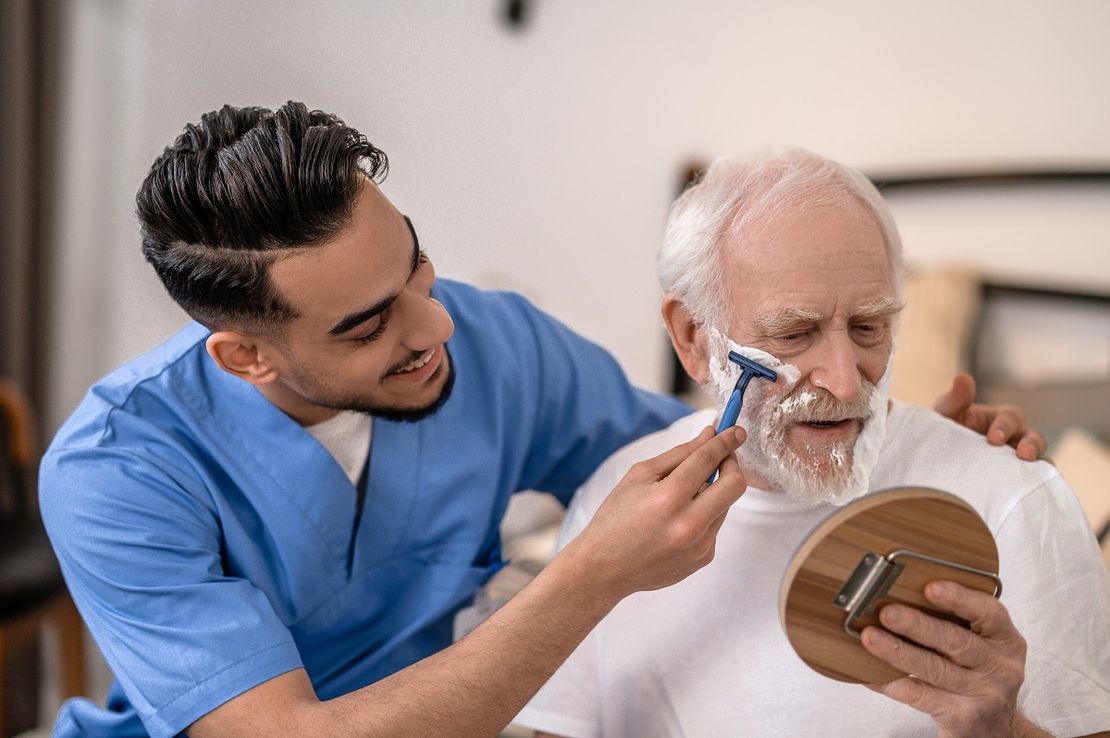
Anyone can become a caregiver or caretaker. Whether this is in a professional capacity or simply assisting our loved ones with health and mobility issues, many of us will assume a care role at some point.
Caregivers and caretakers do similar work, and the terms are often used interchangeably in casual conversation, but the distinction does matter, and it’s worth taking a look at the differences between the two. In this article, we will explore what distinguishes a caregiver from a caretaker.
What Is The Difference Between A Caregiver And A Caretaker?
The differences between caregiving and caretaking can be summarized as follows:
A caregiver is anyone who directly cares for someone else (e.g., seniors, children, people with a disability or illness). A caregiver is more likely to be a friend or family member of the person needing care. This category includes professional caregivers and volunteers.
A caretaker, however, cares for more than just people. Their duties extend to the environment, such as maintaining the building, its contents, and the property. The caretaker has a more professionalized and detached relationship with the person needing care. Duties may not involve caring for a specific person at all, as in a caretaker tasked with caring for a home or facility rather than its residents.
Who Counts As A Caregiver?
Caregiver work supports a spectrum of emotional, physical, and psychological needs. When home medical care is prescribed by a healthcare provider, professionals such as nurses and physical therapists can be caregivers. But most caregivers are there to provide non-medical personal care.
Personal caregivers sometimes work independently but are usually employees of a home care agency. Agencies provide support, benefits, and peace of mind as their caregivers have been vetted and trained. Home care simply refers to care given to an individual inside their home or assisted living facility. The aim of this type of care is to enable the individual to live safely and comfortably with some independence.
There are many reasons why someone might need home care. Most people who receive home care in the US are over 65 years old. Many of these seniors require assistance with moving around the house and transferring from one position to another when bathing or getting in and out of bed. People of any age with disabilities, mental health conditions, or chronic illnesses may also benefit from the services of a caregiver.
In lieu of professional caregivers, family members often end up taking on the role of caregiver. Although these people may not be formally trained, their affection for and dedication to their loved ones can make them ideal caregivers. In most cases, family caregivers do not seek compensation for their care work, but some home care agencies actively seek out and employ family caregivers, supporting their efforts with remuneration, training, and resources.
What Services Do Caregivers Provide?
The scope of a caregiver’s responsibilities depends on the situation and needs of the person under their care, but the focus is on empowering that person to live a fulfilling life.
The duties of a home caregiver can include the following:
- Assistance in bathing, grooming, and dressing
- Reminders to take medication
- Light housekeeping (e.g., changing bedding, doing the dishes or laundry)
- Meal preparation
- Assistance with buying groceries and other errands
- Companionship, conversation, and emotional support
- Assistance with the use of the phone, computer, or other devices
This may not be an all-encompassing list. It’s important to note that a caregiver usually also makes an emotional investment in the well-being of the person he/she cares for.
Why Not A Caretaker?
A caretaker is someone employed to look after a person, animal, place, or even inanimate object. The role of a caretaker is usually temporary and outlined by a contract, whereas many caregivers have personal relationships with their charges and even a lifelong commitment to their care.
Because of the more detached nature of the role and lack of a personal connection, caretakers are sometimes viewed more negatively than caregivers. The key difference between a caregiver and a caretaker is that a caretaker’s role is focused on maintenance—whether of people, objects, or property—and not on emotional or mental well-being.
Finding The Right Caregiver
If you are considering a career as a caregiver or know someone who could benefit from home care, you can start by getting in touch with your local agencies. Nova Home Care provides professional, personalized home care services in Indiana, Arizona, Colorado, Minnesota, and Connecticut. Contact us online or call 317-537-2490 to find out more about in-home care services or opportunities.


